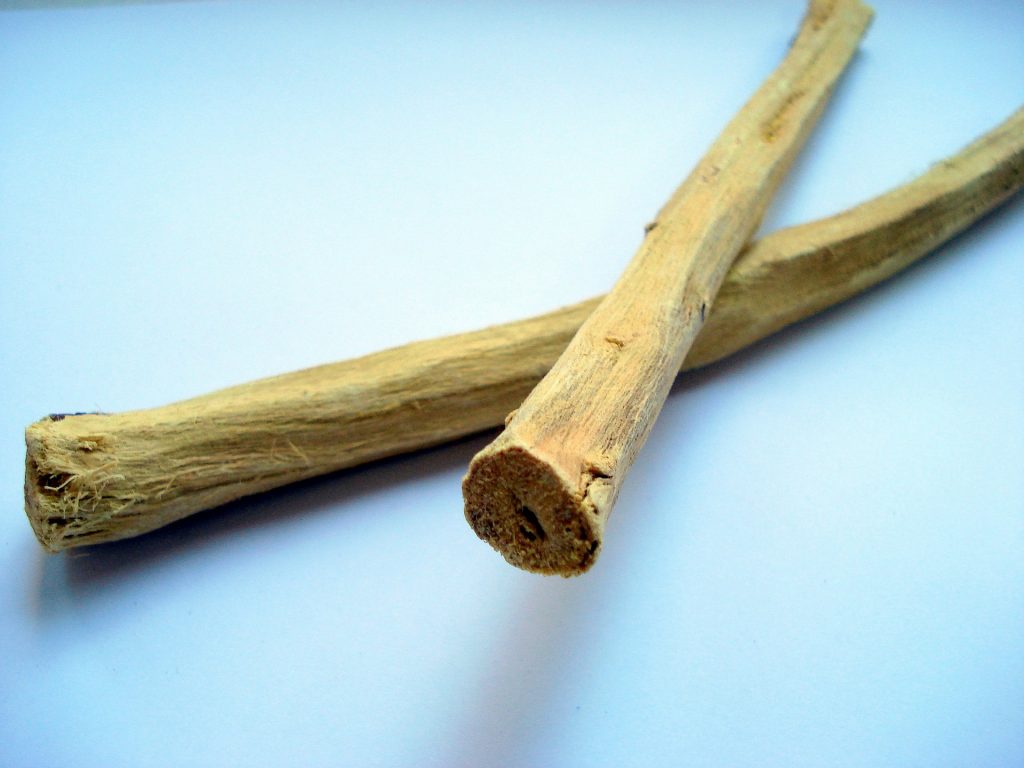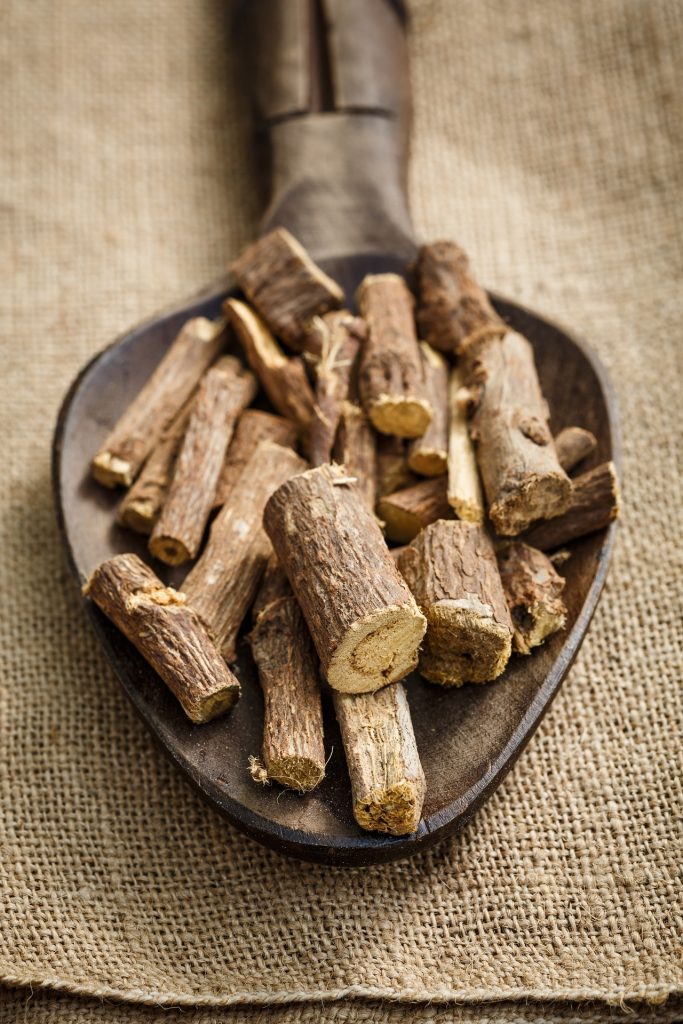 Liquorice (also spelled licorice) is a root extract of the Glycyrrhiza glabra plant. The glycyrrhiza plant belongs to the leguminosae (Fabaceae) family of plants, is herbaceous, and grows to about 1 meter in height. Glycyrrhiza glabra is found in warmer areas of Europe and in part of Asia. Medicinally liquorice has been shown to possess a number of health effects including diuretic, antacid, anti-ulcer, anti-inflammatory, expectorant, antipyretic, antimicrobial and anticonvulsant effects. For this reason liquorice is often used to treat gastrointestinal problems. However, liquorice also possesses central nervous system effects, including the ability to elevate mood. For example in one study researchers investigated the mood elevating effects of aqueous extract of Glycyrrhiza glabra on mice. The mice were exposed to experimental stress and their mood changes assessed. The results of this study showed that liquorice conferred significant antidepressant effects on the mice, and was as effective as the antidepressant drug imipramine.
Liquorice (also spelled licorice) is a root extract of the Glycyrrhiza glabra plant. The glycyrrhiza plant belongs to the leguminosae (Fabaceae) family of plants, is herbaceous, and grows to about 1 meter in height. Glycyrrhiza glabra is found in warmer areas of Europe and in part of Asia. Medicinally liquorice has been shown to possess a number of health effects including diuretic, antacid, anti-ulcer, anti-inflammatory, expectorant, antipyretic, antimicrobial and anticonvulsant effects. For this reason liquorice is often used to treat gastrointestinal problems. However, liquorice also possesses central nervous system effects, including the ability to elevate mood. For example in one study researchers investigated the mood elevating effects of aqueous extract of Glycyrrhiza glabra on mice. The mice were exposed to experimental stress and their mood changes assessed. The results of this study showed that liquorice conferred significant antidepressant effects on the mice, and was as effective as the antidepressant drug imipramine.

Licorice contains glycyrrhizin, a triterpene saponin that may be responsible for some of its neurochemical effects. For example, in one study, glycyrrhizin produced significant antidepressant effects in mice which was comparable to the antidepressant drugs imipramine and fluoxetine. Observations from this study showed that glycyrrhizin was able to increase brain levels of dopamine and noradrenaline, suggesting that glycyrrhizin is possibly the component within liquorice that has monoamine oxidase inhibiting effects.
The mechanisms by which liquorice may confer its antidepressant effects have been studied. For example in one study, the authors provided evidence that this effect may come from the ability of liquorice to increase brain levels of dopamine and noradrenaline. In this regard, liquorice may increase levels of these monoamine neurotransmitters in the brain through its ability to inhibit the monoamine oxidase enzyme system. In another study, researchers assessed the ability of individual liquorice components to alter brain chemistry. The authors reported that the isoflavans glabridin and 4′-O-methylglabridin (4′-OMeG) and the isoflavene glabrene were able to significantly inhibit the reuptake of serotonin in cell culture models. Extract of Glycyrrhiza glabra have also been shown to improve the memory of mice and decrease experimentally induced amnesia. This may relate to the monoamine elevating effects of liquorice, or may be due to the anti-inflammatory and antioxidant effects that it possesses.

Evidence suggests that components within licorice may modulate brain levels of monoamine neurotransmitters through inhibitory action of the monoamine oxidase enzyme system and this may confer antidepressant effects on the consumer. Care need to be take when consuming liquorice because excessive regular intakes can cause reductions in potassium levels and can increase blood pressure.
Eat Well, Stay Healthy, Protect Yourself
RdB
